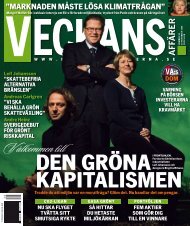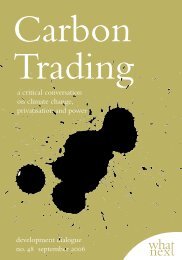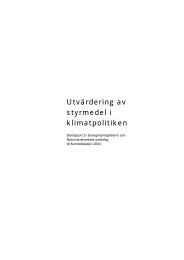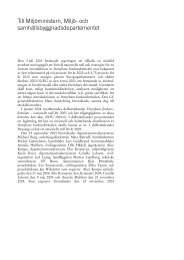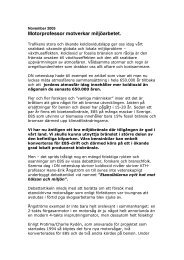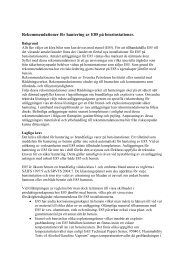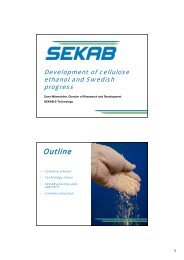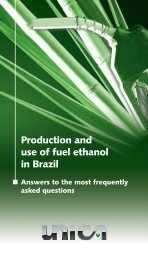Sugarcane ethanol: Contributions to climate change - BAFF
Sugarcane ethanol: Contributions to climate change - BAFF
Sugarcane ethanol: Contributions to climate change - BAFF
You also want an ePaper? Increase the reach of your titles
YUMPU automatically turns print PDFs into web optimized ePapers that Google loves.
Introduction <strong>to</strong> sugarcane <strong>ethanol</strong><br />
Fi�h, the debate also addresses the impacts of biofuels on developing countries. �ese<br />
societies may bene�t greatly by diversifying the energy matrix. However, unbalanced growth<br />
may have unintended consequences for the food security domestically and land use (Teixeira<br />
Coelho, 2005; Kojima and Johnson, 2005; Dufey et al., 2007).<br />
Sixth, the last issue deals with the food prices hike. How do biofuels rank as fac<strong>to</strong>r for<br />
explaining the food prices in 2007-2008 and, possibly, the coming years (Banse, 2008; Maros<br />
and Martin, 2008)? And how does <strong>ethanol</strong> �t in<strong>to</strong> this explanation and projection?<br />
�e impact studies are conducted from a multidisciplinary point of view. Also, the impacts<br />
are observed on di�erent scale levels: global, regional and on value chain level. Hence, the<br />
analysis focuses on land use dynamics, market demand, technology development and public<br />
policies. �ese four main fac<strong>to</strong>rs are assumed <strong>to</strong> contribute <strong>to</strong> the understanding of impacts<br />
of sugarcane <strong>ethanol</strong> on <strong>climate</strong> <strong>change</strong> mitigation and the environment. �e debate asks<br />
understanding based on the latest science based insights (�e Royal Society, 2008). �is<br />
book aims <strong>to</strong> contribute <strong>to</strong> present these insights.<br />
9. Structure of the book<br />
In Chapter 2 the debate on sugarcane <strong>ethanol</strong> focuses on land use from a global point of<br />
view. �ere are many competing demands for land: <strong>to</strong> grow crops for food, feed, �bre and<br />
fuel, for nature conservation, urban development and other functions. �e objective of the<br />
chapter is <strong>to</strong> analyze current and potential sugarcane production in the world and <strong>to</strong> provide<br />
an assessment of land suitable for sugarcane production.<br />
Considering the particular situation in Brazil, Chapter 3 discusses the prospects of the<br />
sugarcane production, considering land use allocation and the land use dynamics. It shows<br />
on an empirical basis the expected sugarcane land expansion. �is expansion is supposed<br />
<strong>to</strong> convert annual crops, permanent crops, pasture areas, natural vegetation and degraded<br />
areas. �e chapter presents substitution patterns based on a reference scenario for sugarcane<br />
and <strong>ethanol</strong> production.<br />
What are the impacts of sugarcane <strong>ethanol</strong> for the mitigation of GHG emissions? Chapter 4<br />
goes in<strong>to</strong> this debate. �e chapter compares the <strong>ethanol</strong> production in 2006 with a scenario<br />
for 2020. Next energy �ows and a life cycle analysis is presented. �en the e�ects on land<br />
use <strong>change</strong> on GHG emissions on global scale are discussed. Finally the chapter discusses<br />
the indirect e�ects of land use <strong>change</strong> in the Brazil.<br />
Chapter 5 addresses the question on environmental sustainability of the sugarcane <strong>ethanol</strong><br />
production in Brazil. Sustainable production is discussed worldwide. For bio<strong>ethanol</strong><br />
sustainability criteria vary among countries and institutions. Criteria that are pertinent in the<br />
debate are use of agricultural inputs, air quality and burning of sugarcane vs. mechanization,<br />
<strong>Sugarcane</strong> <strong>ethanol</strong> 25



